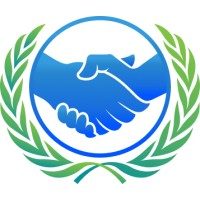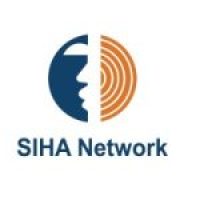The assessment on the impact of climate change on women and girls will be conducted across the 10 States and 3 Administrative areas in South Sudan. The results from this assessment will inform what measures are needed to address the specific vulnerabilities and challenges faced by women and girls due to climate change. Specific objectives of the assessment include:
- To raise awareness and generate data on the impact of climate change on women and girls: This issue is critical and often overlooked amidst the various challenges the country faces. An assessment will help highlight the unique challenges women and girls encounter, providing a basis for advocacy and targeted interventions;
- To understand the root causes of the vulnerabilities of women and girls to climate change: Identifying the factors that exacerbate the impact of climate change on women and girls will help develop effective strategies to address these issues and enhance resilience;
- To develop recommendations for improving climate change adaptation and resilience among women and girls: This includes suggesting changes to policies and practices, as well as raising awareness and educating communities about the gender-specific impacts of climate change;
- To equip relevant stakeholders with the knowledge to establish and maintain gender-responsive early warning systems and disaster preparedness mechanisms: This ensures that ministries, departments, agencies, local authorities, and communities are better prepared to support women and girls in the face of climate-related disasters.
An assessment on the impact of climate change on women and girls in South Sudan is a crucial step towards creating a more resilient and equitable society. It will help protect women’s rights and ensure their active participation in climate resilience and adaptation efforts.
Duties and Responsibilities
With direct reporting to the Programme Officer Women, Peace, and Security and under the overall guidance of the Deputy Country Representative, the consultant will:
1. Conduct a country-wide assessment on the Impact of Climate Change on Women and Girls in the Context of Conflict and Peacebuilding in South Sudan:
- Submission and acceptance of the inception report, which includes a detailed research design, methodology, tools, and work plan;
- Data collection, Analysis, Submission and acceptance of draft assessment report and presentation of key findings:
- Conduct primary and secondary data collection on available information on the impact of climate change on women and girls;
- Consult relevant stakeholders to identify the barriers faced by women and girls in relation to climate change;
- Harmonize all data and findings;
- Make recommendations based on findings, including from stakeholders;
- Submission and acceptance of the final assessment report;
- A detailed assessment report with clear findings and recommendations.
2. Facilitate both internal and external validation workshops` to review the data collected with key stakeholders and produce a final assessment report incorporating comments from the validation workshop:
- Act as lead facilitator for both internal and external validation workshops;
- Compile the feedback from the validation workshops and incorporate it into the assessment document;
- Copy-edit the document and produce a polished final version.
-
Competencies
Core Values:
- Respect for Diversity
- Integrity
- Professionalism
Core Competencies:
- Effective Communication;
- Inclusive Collaboration;
- Stakeholder Engagement;
- Accountability;
- Creative Problem Solving;
- Leading by Example.
Key Performance Indicators:
- Timely and quality submission of reports;
- Analysis of secondary and primary data;
- Survey tools;
- Presentation of findings to key stakeholders;
- Engagement with stakeholders.
Functional Competencies
- Excellent research and analytical skills: Ability to conduct thorough research and analysis on the impact of climate change on women and girls, particularly in conflict and peacebuilding contexts;
- Strong knowledge and experience in women, peace and security, and climate change: Understanding of how climate change exacerbates issues related to gender equality and women’s empowerment in these areas;
- Data gathering and interpretation: Proficiency in collecting and interpreting data to reach logical conclusions and present well-founded findings and recommendations;
- Expertise in contextual gender equality literature: Deep knowledge of literature on gender equality, women’s rights, empowerment, and climate change, especially in conflict-affected areas;
- Practical knowledge of initiatives promoting women’s security and resilience: Experience with initiatives that enhance women’s security and resilience in the face of climate change and conflict;
- Proven experience in data collection from relevant stakeholders: Ability to collect data from stakeholders at the state level, focusing on the specific challenges women and girls face due to climate change;
- Excellent networking and communication skills: Ability to engage effectively with a wide range of stakeholders, including government agencies, local authorities, and community groups;
- Facilitation and presentation skills: Ability to facilitate meetings and presentations that communicate complex information effectively;
- Ability to simplify complex information: Skilled at breaking down complex information to make it accessible to individuals with limited literacy;
- Promotion of knowledge sharing and learning culture: Commitment to fostering a culture of knowledge sharing and continuous learning;
- Extensive experience in developing and finalizing technical documents/reports: Proven track record of producing high-quality technical documents and reports in gender equality, climate change, and conflict.
Required Skills and Experience
Education and certification:
- Master’s degree (or equivalent) in Social Science Research or related field (e.g., Statistics, Political Science, International Relations, Gender, Development, Communications, Public Relations) or a related field.
Experience:
- Minimum of 7 years of experience in research and data analysis;
- Demonstrated extensive knowledge of Governance in South Sudan;
- Proven experience facilitating and making presentations targeting high level stakeholders;
- Proven experience and evidence of having conducted previous assignments on research and data analysis;
- Experience of working with multi-stakeholder organizations is desirable, governments, CSOs, and the UN/ multilateral/bilateral institutions;
- Knowledge of issues related to gender equality in South Sudan is desirable
- Strong report writing and development of knowledge products.
Language Requirements:
- Fluency in English is required Arabic is desirable;
- Excellent English writing skills is required.
Annex: (I) Application procedure and deadline
- Interested applicants must submit the following documents/information (in PDF format) to demonstrate their qualifications:
Technical component:
- Letter of interest explaining why they are the most suitable for the work.
- Technical proposal of no more than three pages outlining the applicant’s understanding of the assignment and proposed methodology for the assignment, including stakeholders to be met.
- A Curriculum Vitae (CV) with contact details of 3 (three) clients for whom you have rendered similar services.
- Sample work (may be asked for in separate communication).












